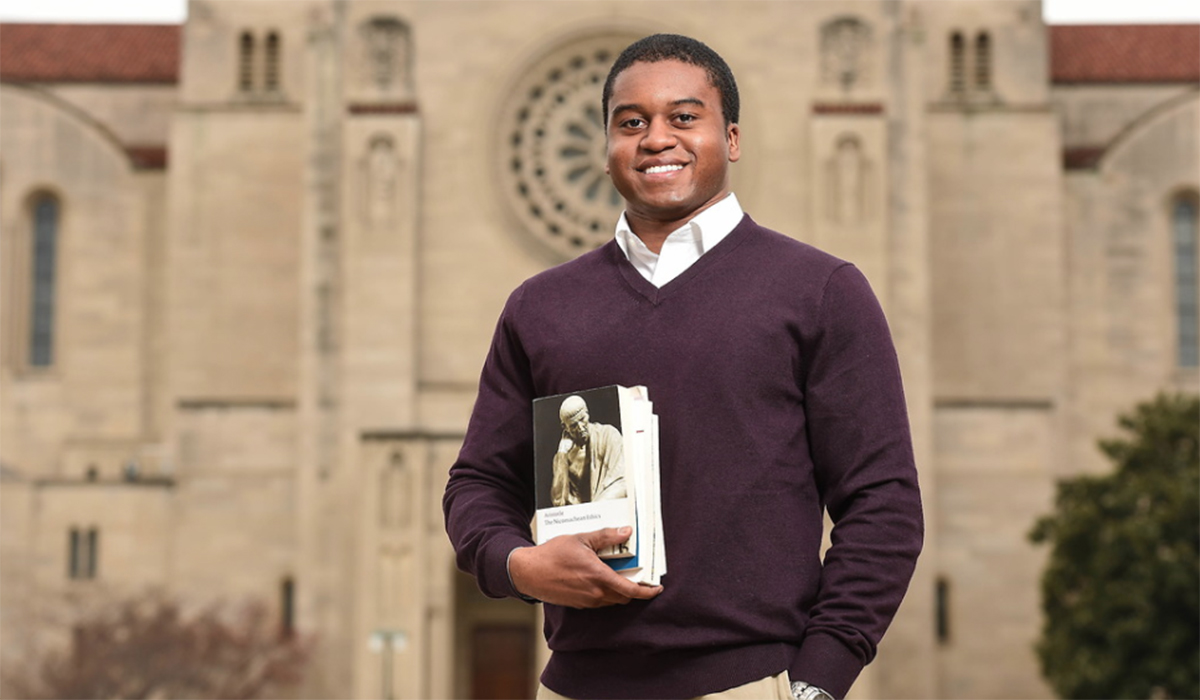

Lance Casimir sits with his hands folded on the table in front of him. The Starbucks in the Edward J. Pryzbyla University Center is loud — the espresso machine whirs, someone is talking on a cell phone in the corner. Casimir is still despite the din. He looks like he’s thinking something serious even though it’s only 8:30 in the morning. And he probably is.
Casimir is a serious guy. He’s a philosophy major headed to law school in the fall. He wants to change the world and he’s spent four years thinking about what that means.
“One of my favorite professors, Monsignor [Robert] Sokolowski, says that philosophy is the art of making distinctions,” notes Casimir. “It’s not easy to make those distinctions. It takes time. It’s thinking in a different way, thinking about the nature of things.”
Casimir has been thinking about the nature of things since he was a kid. Growing up, his family often discussed serious topics with one another — current events, culture, ethical debates, theology, history.
"The pursuit of truth and wisdom comes down from the University and permeates the rest of the culture. I think that idea is key — public life and the spiritual life are not separate. Your spiritual life informs your public life."
“My family likes dialogue,” he said. “We didn’t push the difficult topics away. We really embraced those topics and tried to understand them. Even if we didn’t agree, the beautiful thing is that we did discuss [them].”
When Casimir arrived at Catholic University, he settled into the University’s discussion-based approach to learning with ease. He cited Associate Professor Angela Knobel’s philosophy course, Contemporary Moral Issues, as particularly formative for him as a future lawyer.
There was a lot of debate in the class. “The professor was very good at encouraging dialogue. I think that’s one of the good things about [professors at] Catholic University; they integrate all aspects of study and all different kinds of students into a productive conversation.”
Casimir says his mission as a future lawyer is related to the mission of his alma mater.
“The bishops wanted the University on a hill so that it could be seen on all sides. So that it could be seen as a place of service to both Church and nation. The pursuit of truth and wisdom comes down from the University and permeates the rest of the culture. I think that idea is key — public life and the spiritual life are not separate. Your spiritual life informs your public life.”